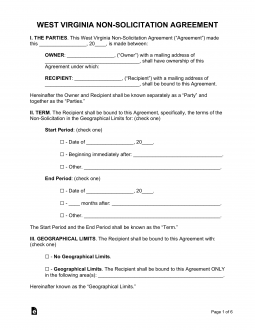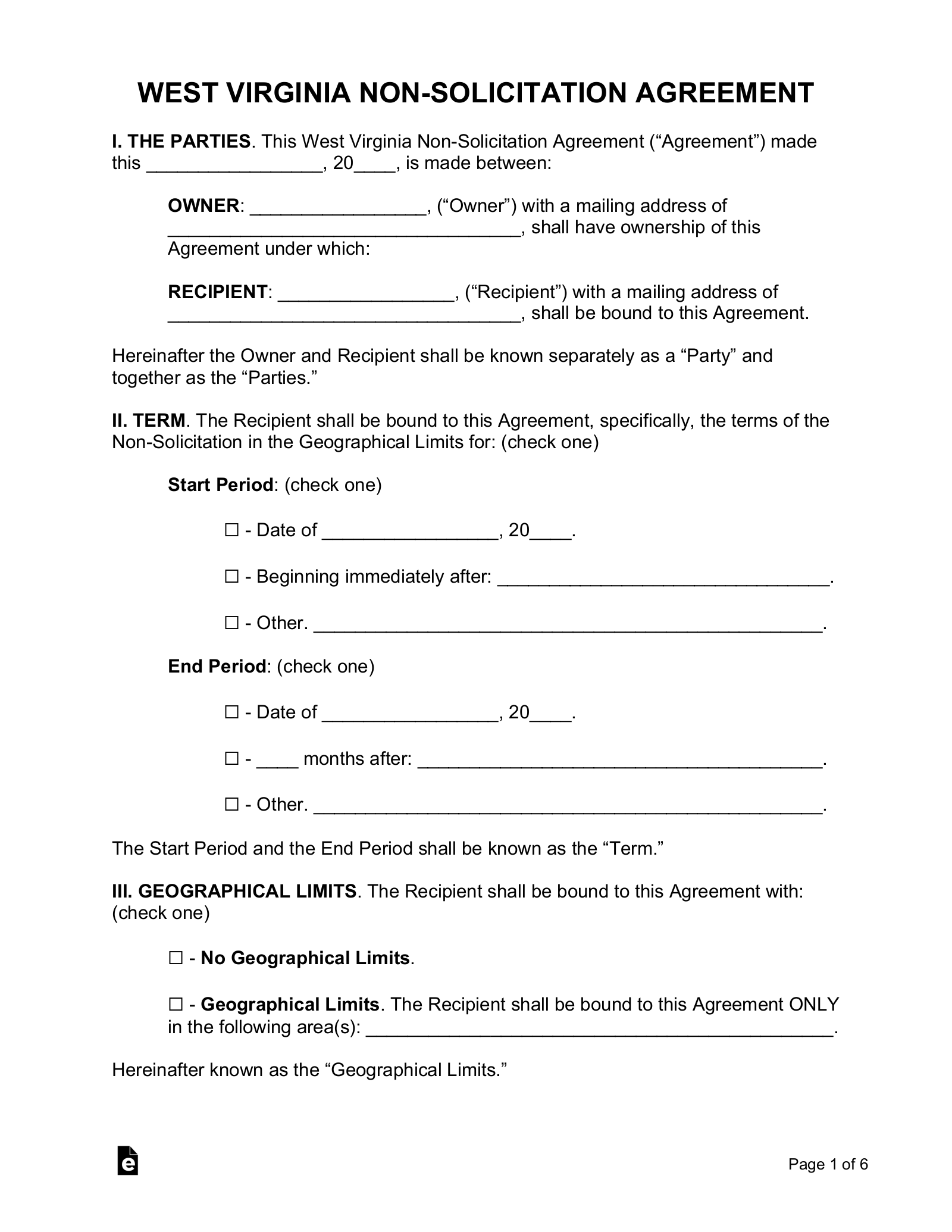Updated April 19, 2024
A West Virginia non-solicitation agreement is a contract between an employer and an employee that prevents the employee from soliciting the employer’s customers upon the termination of employment. The agreement sets the terms for how long and where the former employee is prohibited from doing so. Similar to a non-compete or non-disclosure agreement, a non-solicitation agreement can be a stand-alone document or be included in an employment contract.
Is It Legally Enforceable in West Virginia?
Yes — if the court finds the agreement reasonable in terms of timeframe and geographic area in which non-solicitation is prohibited.
While there are no statutes in West Virginia dealing specifically with these agreements, case law shows that if an agreement protects an employer’s legitimate business interests, does not curb the employee’s freedom unnecessarily, and does not run counter to the public interest, it will hold up in court.[1]
State law does, however, limit restrictions on competition from employers for physicians. These contracts must not be valid for longer than one year or beyond 30 miles.[2]
Table of Contents |
What Can a Non-Solicitation Agreement Prohibit?
In West Virginia, if the agreement is within reason, it can be used to restrict a former employee from recruiting, contacting, or hiring the employer’s:
- Former or current clientele
- Former or current employees
- Independent contractors
- Suppliers and other associates
What Should a Non-Solicitation Agreement Include?
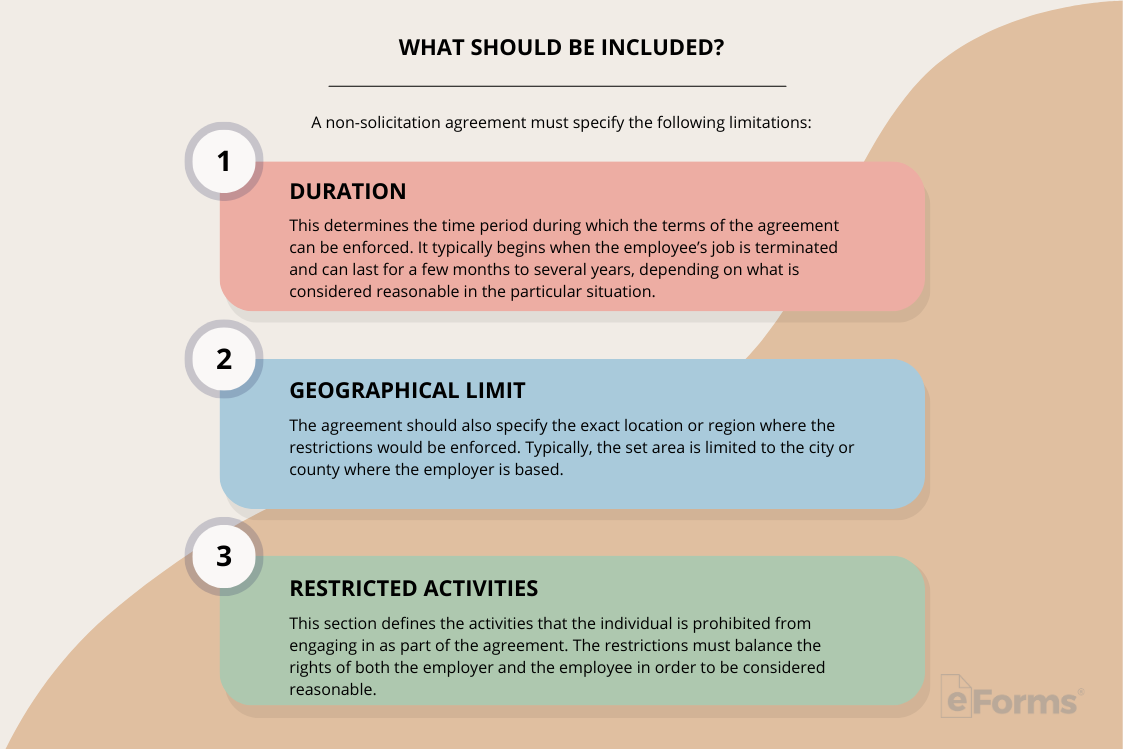
To hold up in a West Virginia court of law, a non-solicit covenant must include reasonable limits with regard to:
1. Duration
This determines the time period during which the terms of the agreement can be enforced. It typically begins when the employee’s job is terminated and can last for a few months to several years, depending on what is considered reasonable in the particular situation.
2. Geographical Limit
The agreement should also specify the exact location or region where the restrictions would be enforced. Typically, the set area is limited to the city or county where the employer is based.
3. Restricted Activities
This section defines the activities that the individual is prohibited from engaging in as part of the agreement. The restrictions must balance the rights of both the employer and the employee in order to be considered reasonable.
Related Forms
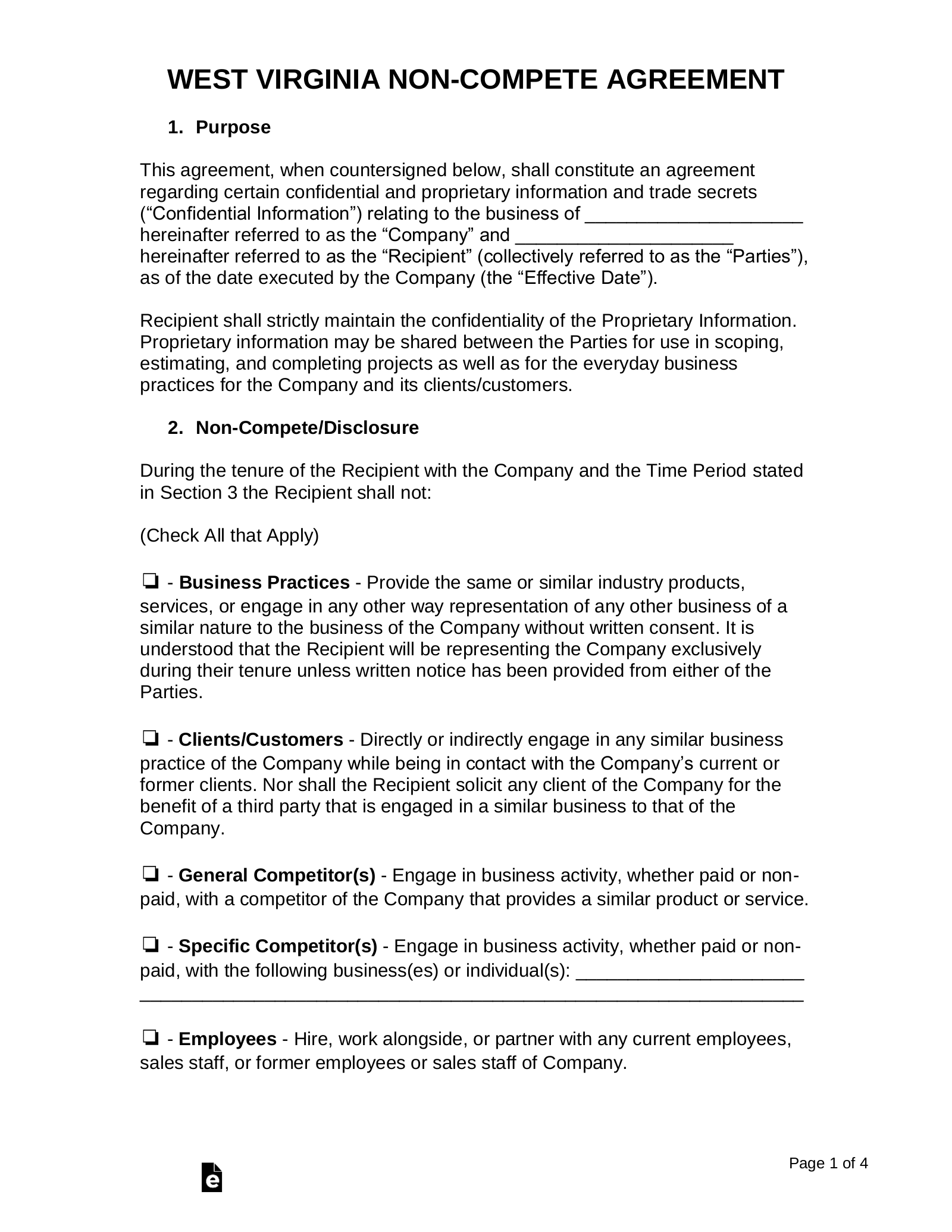 West Virginia Non-Compete Agreement
West Virginia Non-Compete Agreement
Download: PDF, MS Word, OpenDocument
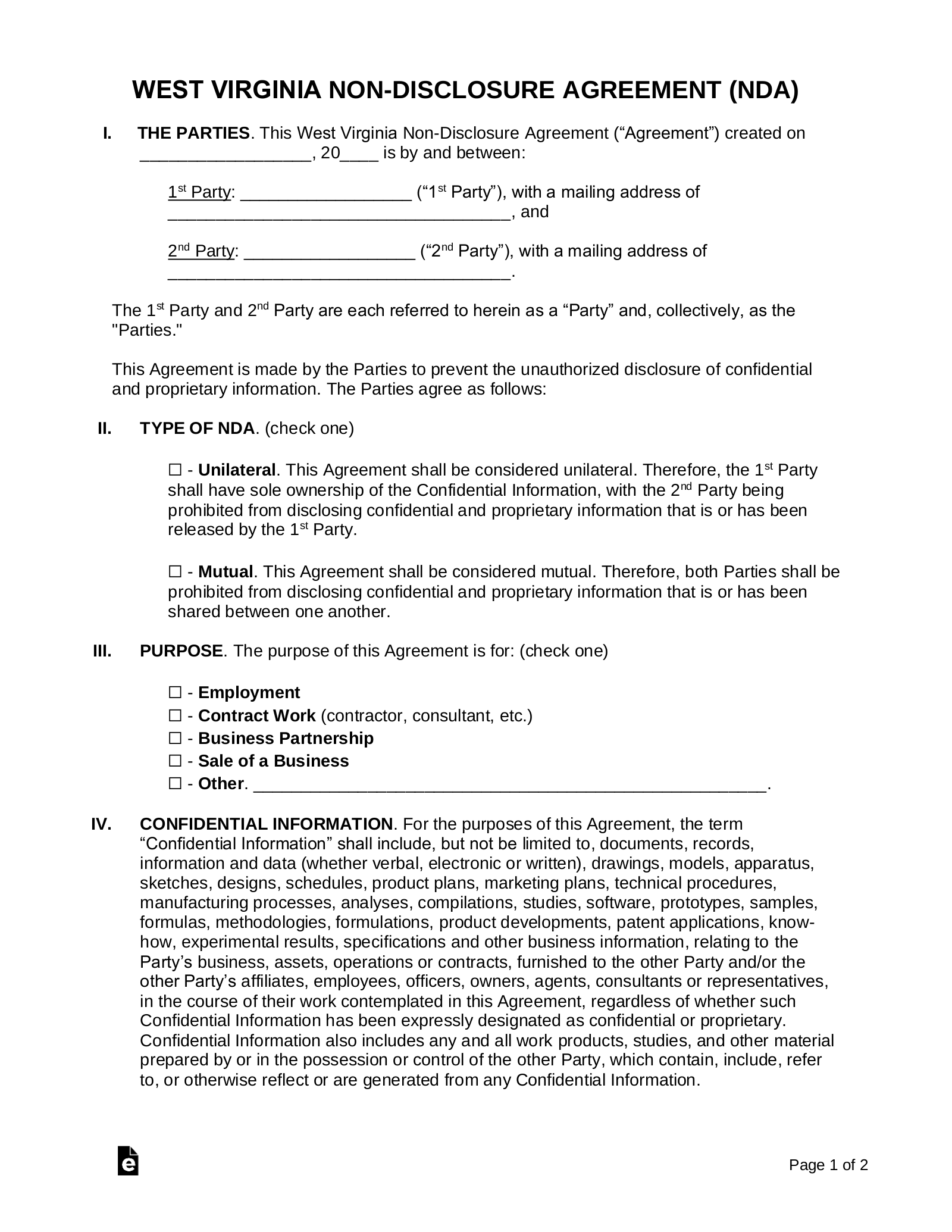 West Virginia Non-Disclosure Agreement
West Virginia Non-Disclosure Agreement
Download: PDF, MS Word, OpenDocument

